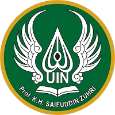Examining Domestic Violence Under Nigerian Law and Islamic Law
DOI:
https://doi.org/10.24090/el-aqwal.v3i1.11086Keywords:
Domestic violence, Islamic law, Spouses, Family, Protection orderAbstract
The paper examined domestic violence under Nigerian law and Islamic Law. Domestic violence involves infliction of physical, sexual, or psychological harm by one spouse on the other. To achieve the aim and objectives of this research, the meaning, nature and causes of domestic violence were briefly discussed. The paper adopted a doctrinal research method by conducting an in-depth analysis of the Violence Against Persons (Prohibition) Act, 2015, some Qur’anic provisions, prophetic traditions and juristic opinions relating to the topic. The paper critically examined and analyzed Chapter 4, verse 34 of the Holy Qur’an to find out whether or not its provision permits, condones or endorses domestic violence against women. The study found that this Qur’anic verse does not encourage, condone, endorse or permit domestic violence in whatever form. It further found that the beating mentioned in the verse is a non-violent symbolic gesture. The major findings are that Islam prohibits and condemns any form of domestic violence against women, and the principles of compassion, mercy, and respect for human dignity are central to Islamic teaching. The paper recommended collaborative efforts of the government and religious leaders to campaign against and condemn domestic violence in whatever form and all ramifications.Downloads
References
Agnes, Flavia, and A. U. D. R. E. Y. D'MELLO. "Protection of women from domestic violence." Economic and Political weekly (2015): 76-84.
Alwani, Zainab. “Domestic Violence: Islamic Perspective.” Zainab Alwani, 2013. http://www.zainabalwani.com/domestic-violence-islamic-perspective/.
Anyii, Moses Omara. "Domestic violence and girl child education in Lira district: a case study of Lira municipality." (2012).
Burton, Mandy. Legal Responses to Domestic Violence. England: Routledge, 2008.
Chika, Ifemeje Sylvia. “Gender-Based Domestic Violence in Nigeria.” Indian Journal of Gender Studies 19, no. 1 (February 25, 2012): 137–48. https://doi.org/10.1177/097152151101900107
Crow, Karim Douglas. "Ibrahim Ahmad Aliyu, Protection of Women's Rights Under the Shari'ah." ICR Journal 3, no. 1 (2011): 207-213.
Eze-Anaba, Itoro. "Domestic violence and legal reforms in Nigeria: Prospects and challenges." Cardozo JL & Gender 14 (2007): 21.
Kamali, Mohammad Hashim. Shari'ah law: An introduction. Simon and Schuster, 2008.
Llb, Oluwakemi Adekile. “Treaty Obligations of States Regarding Gender- Based Violence : Commitments and Activities From Nigeria.” International Journal of Legal Studies and Research 10, no. 1 (2021): 1–26.
Madu, Jonathan Chukwuemeka. "Domestic violence legislation for development, peace and security in Nigeria." African Security Review 24, no. 3 (2015): 279-290.
Majekodunmi, Subuola Mojoyinola. "Domestic violence: an analysis of the laws and policies in Nigeria." (2004).
MP LD, House P, St G, Donaldson DM. Re: Domestic and Family Violence Protection and Another Act Amendment Bill 2015.
Oyediran, Kolawole Azeez, and Uche C. Isiugo-Abanihe. “Perceptions of Nigerian Women on Domestic Violence: Evidence from 2003 Nigeria Demographic and Health Survey.” African Journal of Reproductive Health 9, no. 2 (August 1, 2005): 38. https://doi.org/10.2307/3583461.
Ross, Lee E. Domestic violence and criminal justice. Routledge, 2017.
Sabiq, Sayyid. Fiqhus-Sunna. Darul Fikr, Vol. 2, 160.
Ṭabarī. Jamilu Al Bayan An Ta’wil Aayi al-Qur’an. Beirut: Dar al-Fikr, 1988.
Ṭabarī, and Moshe Perlmann. The History of Al-Tabari. Albany: State University of New York Press, 1987.
Taylor, Leonie. "Domestic violence: The problem pervading Nigeria." Retrieved on July 28 (2012): 2014.
Taylor, Leslie J. "The Evolution of Black's Law Dictionary." Can. L. Libr. Rev. 36 (2011).
Thueson, Sean D. "Civil Domestic violence protection orders in Wyoming: Do they protect victims of domestic violence." Wyo. L. Rev. 4 (2004).
Downloads
Published
How to Cite
Issue
Section
License
Copyright (c) 2024 Yahaya Ibrahim Abikan

This work is licensed under a Creative Commons Attribution-ShareAlike 4.0 International License.
Authors who publish with this journal agree to the following terms: Authors retain copyright and grant the journal right of first publication with the work simultaneously licensed under a Creative Commons Attribution-ShareAlike 4.0 International License that allows others to share the work with an acknowledgment of the work's authorship and initial publication in this journal.




